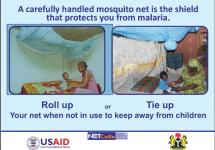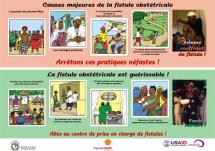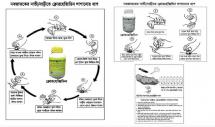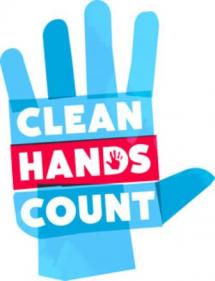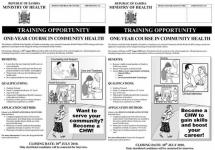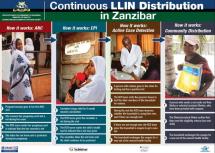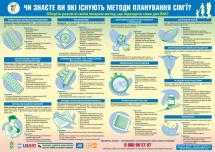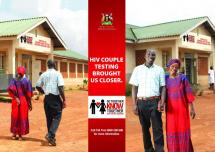A Carefully Handled Mosquito Net is the Shield That Protects You from Malaria
One of a set of posters from the NetCare project in Nigeria promoting behaviors to increase the lifespan of malaria nets through careful handling and repair. This poster shows how to roll up or tie up a net when it is not in use, to keep it away from children and thus prevent it from tearing or from other damage.
Source: Johns Hopkins University Center for Communication Programs
Date of Publication: March 25, 2019
SIMILIAR RESOURCES
Tools
Examples
- Care of Mosquito Nets Toolkit
- Steps for Malaria Prevention and Treatment
- Nigeria Centre for Disease Control COVID-19 Resource Center
- Creating Mobile Health Solutions for Behaviour Change: A Study of Eight Services in the mNutrition Initiative Portfolio
- Incorporating Net Care into Malaria Social and Behavior Change Communication Strategies: A Step-by-Step Guide
- SBCC for Malaria in Pregnancy: Strategy Development Guidance
- “Because my Husband and I Have Never Had a Baby Before…” Results and Lessons from Interventions with First-Time Parents in Madagascar, Mozambique, and Nigeria
- Social and Behavior Change for Insecticide-Treated Nets (ITN)
- ITN Access and Use Report
- Considerations and Principles for Shielding People at High Risk of Severe Outcomes from COVID-19
- Do Not Wait for Small Holes in Your Mosquito Net to Get Bigger. Repair Holes Immediately!
- I Am a Responsible Man. I Repair My Torn Mosquito Nets to Make Them Last and Protect my Family from Malaria
- Your Mosquito Net is Like a New Born Baby
- My Net Care Plan
- How To Care For and Repair Your Nets (LLIN): Frequently Asked Questions

